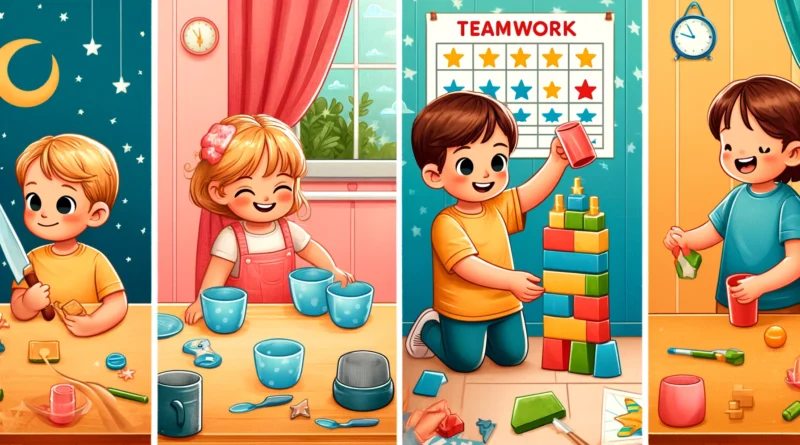How to Teach Young Children About Teamwork and Working Together
Teamwork helps children develop critical life skills like communication, cooperation, patience, and empathy. From group play to family tasks, teaching young kids to work together prepares them for school, friendships, and future success. With fun activities and everyday moments, you can help your child understand that together really is better.
Why Teamwork Matters
- Fosters social and emotional development
- Builds communication and listening skills
- Teaches compromise and sharing
- Encourages patience and cooperation
- Promotes a sense of belonging and contribution
Option 1: Practice Teamwork with Shared Tasks at Home
Activity Idea:
Assign a group chore like tidying a room or setting the table as a team.
Divide roles: one person places the plates, the other adds cups.
Use a fun phrase like: “Let’s be the teamwork team!”
What Kids Learn:
- How to share responsibilities
- Joy in shared accomplishments
- That working together can be fun
Tool Suggestion:
Create a “Teamwork Chart” where your child earns stars for participating in group tasks.
Option 2: Use Cooperative Games and Group Play
Activity Idea:
Play games that require collaboration, such as:
- Building a puzzle together
- Making a block tower as a team
- Playing “parachute” or “follow the leader”
Avoid competitive language and instead cheer for joint effort: “Look how well you worked together!”
What Kids Learn:
- Communication during shared goals
- Turn-taking and role flexibility
- Team spirit and encouragement
Book Suggestion:
Swimmy by Leo Lionni — a story about small fish working together to stay safe and strong.
Other Ways to Encourage Teamwork
- Model it at home: Narrate your teamwork moments: “We’re cooking dinner together—you chop, I stir!”
- Praise collaboration: “I loved how you helped your friend clean up!”
- Do family projects: Make art, build a fort, or plant a flower bed together
- Use “we” language: “We did it!” instead of “You did it.”
Final Thoughts
Teamwork teaches children that everyone has something valuable to offer. By involving your child in cooperative play, shared tasks, and group projects, you show them the beauty of working with others. When children experience the joy of connection and shared success, they grow into thoughtful, capable team players in every part of life.
